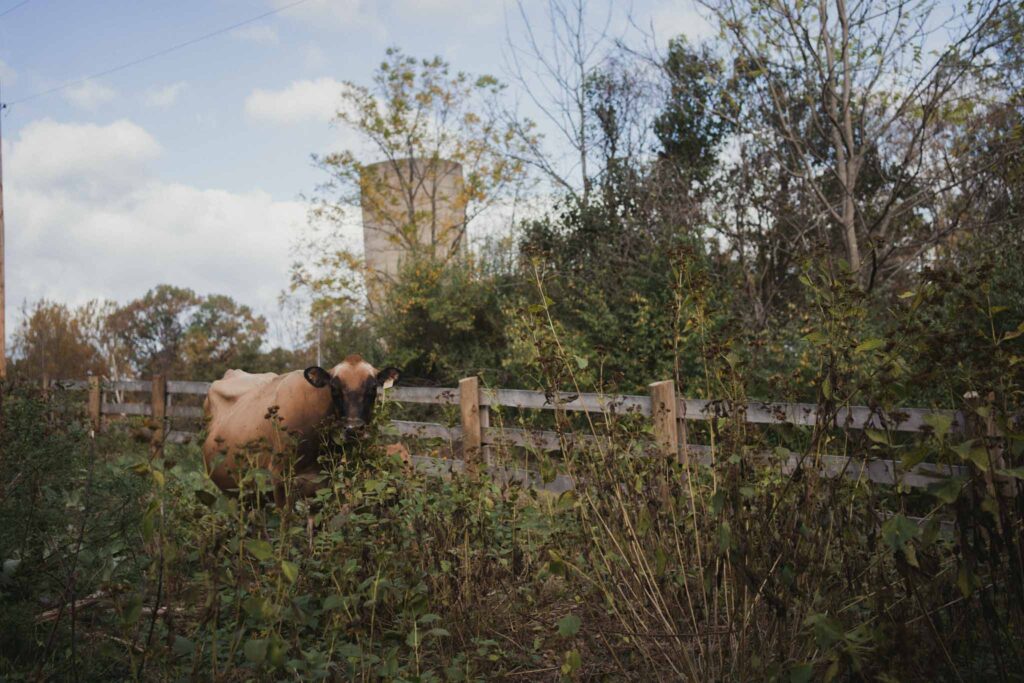
Raw Milk Herdshares
1 share equals 1-gallon a week
($10)
2 shares equals 2-gallons a week ($20)
*billed monthly, whether you pick up or not!
Herd-share Owner Perks
Get first access to our extra produce, plants, seed starts, yogurt, butter, pastured meats, and more—before the general public!
What You Need
Each herd share owner will need to purchase half-gallon mason jars for their herdshare. If you are getting 1-gallon per week, you’ll need four half-gallon jars. If you are getting 2-gallons per week, you’ll need eight half-gallon jars jars, and so on.
We also recommend you purchase the no-leak jar lids as well. You can find those by clicking here.
What Kind of Milk?
We have two grass-fed jerseys that provide our farm with delicious, rich, A2/A2 raw milk. Our milk is non-homogenized (separates) and unpasteurized. Read more about the benefits of raw milk, and especially A2 milk, below.
Ready to Get Signed Up?
Just shoot us an email at info@refugeofliberty.com to see availability. Or give us a call!
About Our Herd
When we say “beyond organic practices”, we really mean it. Our heritage Jersey cows are grass fed (including hay), and are rotationally grazed throughout the entire year (not just the spring). We manage our herd as holistically as possible (which is easy when you’re an herbalist!). Modern “organic” labels are rarely organic at all. From start to finish, we try to use the most organic options available to our farm, just without the government label.
Currently, we own two beautiful Jersey cows. Martha, who is an A2/A2 small framed mid-size Jersey (and her calf), and Hazel, who is an A2/A2 heritage small framed Jersey. Martha does receive a bit of non-gmo oats, but does not eat a “grain” feed. We still consider this part of a “pastured” diet as cows naturally eat the oat and wheat tops of the grass in the field. She does not get a ration of dairy feed or cattle grain mix of any kind. She does not receive corn, soy, or anything that does not naturally grow in the field. Hazel, on the other hand, is completely grassfed without the oats.
Herdshare owners can expect to never run out of milk, as these cows are bred at different times in order to ensure that there is never a lull in milk supply due to dry-off and calving periods.
What is a Herd-share?
In the state of Virginia, it is illegal to purchase raw milk. You can only consume the raw milk that you get from your own dairy animal. Thankfully, you can “own” a small portion of what we call a “herd share”. Should you, at any time, no longer want to be part of the herd share, you will receive your initial buy-in amount back.
How Much Is a Herd-share?
In order to “own” a portion of our herd, you must pay an upfront one time buy-in cost of $30 for a share of the herd. From there, you simply pay a monthly boarding fee for the cows (we call this a “share”), which covers feed costs and our time to milk and do after-milking processing.
Once your initial buy-in is done, then you’ll choose whether you want a one or two shares each month. Upon availability, we may also have two or more full shares available for you each week. You are billed monthly for your shares whether you pick up the milk or not. Cows still have to be milked and fed!
What If I Don’t Want Milk One Week?
Please let us know ahead of time if you are unable to pick up your milk that week. You are still required to pay the monthly boarding fee whether you pick up your milk or not.
Do You Sell Raw Milk Products?
Yes, at times we will sell milk products as part of your share, like yogurt, cheese, and butter. Please ask us if you’re interested! And definitely subscribe to our newsletter for a weekly or monthly update.
The Health Benefits of Raw Milk
via realmilk.com
Milk is an important source for nutrients like fat-soluble vitamin A, D, E and K2; vitamin C; all the B vitamins, especially vitamins B2, B6 and B12; and minerals like calcium, phosphorus and zinc as well as essential trace minerals. Levels of these vitamins will be higher if the cow is on pasture eating green grass.
Moreover, raw milk supplies enzymes and carrier proteins to ensure that 100 percent of every nutrient is absorbed. Pasteurization destroys all these important co-factors. Milk that is processed, pasteurized, evaporated, centrifuged or otherwise tampered in some way, does not offer this miraculous all-in-one source for nutrients.
Raw milk contains all twenty-two essential minerals including calcium, chlorine, magnesium, phosphorus, potassium, sodium, sulfur, zinc, iodine and other trace minerals. Raw milk provides a special enzyme for each of the minerals, so they are 100 percent absorbed. For example, lactoferrin in raw milk ensures the assimilation of iron; it is destroyed by pasteurization.
There are sixty functional enzymes in raw milk. Some of them are native to milk and some are produced by beneficial bacteria that are encouraged by the compounds in milk. These enzymes, such as lipases (for fat digestion) and proteases (for protein digestion), act as catalysts to increase the bioavailability of nutrients.
Raw milk contains compounds that support the growth of large numbers of diverse organisms including lactobacillus and bifidobacteria. These act as agents to help build a balanced gut microbiome. These organisms also increase the absorption of essential nutrients such as minerals and vitamins folate and B12. The probiotic diversity of beneficial bacteria and other bioactive components (enzymes and antibodies) in raw milk supports the proliferation of healthy flora in the intestines while protecting against potentially harmful bacteria such as salmonella or E. coli.
